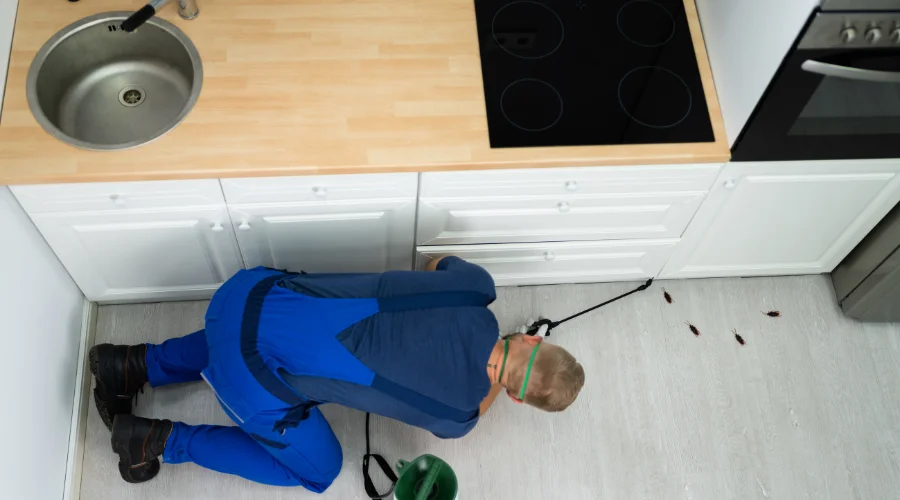Unwanted intruders, commonly known as pests, have the knack for disrupting the tranquility of our homes and gardens, turning them into battlefields. But fret not! Armed with the right strategies and a touch of know-how, you can fortify your living spaces against these unwelcome guests. This article is your guide to practical pest prevention, ensuring a pest-free environment throughout the year.
Don’t let pests disrupt your peace—trust Santee Pest Control Company to deliver comprehensive solutions and protect your home or business from invasion.
Preventing Pests in Your Home
Seal Entry Points: Pests often find their way indoors through tiny cracks and crevices. Regularly inspect doors, windows, and walls for openings, and seal them with caulk or weather stripping to keep pests at bay.
Eliminate Food Sources: Maintain a tidy kitchen, free of crumbs, and store food in sealed containers. Promptly clean up spills and regularly empty garbage cans to deter pests from invading your home.
Declutter: Reduce hiding spots for pests by minimizing clutter in your home. Regularly clean and organize storage areas to eliminate potential nesting sites.
Fix Leaks: Moisture attracts pests like ants and cockroaches. Repair plumbing leaks promptly and ensure proper drainage around your home’s foundation.
Regular Maintenance: Keep your home well-maintained both indoors and outdoors. Trim vegetation touching your house and clear gutters and downspouts of debris to discourage pests.
Natural Deterrents: Certain plants and essential oils can repel pests. Planting marigolds, lavender, or mint around your home can discourage insects like mosquitoes and flies.
Controlling Pests in Your Garden
Companion Planting: Some plants naturally repel pests or attract beneficial insects. For instance, planting basil near tomatoes can deter aphids and hornworms.
Crop Rotation: Rotate crops each season to disrupt pest lifecycles and reduce the likelihood of infestations.
Mulch: Mulching garden beds conserves moisture and acts as a barrier against pests like slugs and snails.
Handpicking: Regularly inspect your garden and manually remove pests to prevent infestations.
Beneficial Insects: Encourage natural predators like ladybugs and praying mantises by planting diverse, pollinator-friendly gardens.
Best Pest Control for Garden
Effective pest control in the garden often combines preventive measures and targeted interventions. Organic options like neem oil and insecticidal soap can be effective against pests while minimizing harm to beneficial insects and the environment.
12 Steps to Preventing Garden Pests Naturally
- Choose Pest-Resistant Plant Varieties: Select plant varieties known for their resistance to common pests.
- Keep the Garden Clean and Tidy: Regular maintenance prevents pest issues by removing potential hiding spots and debris.
- Provide Adequate Spacing Between Plants: Proper spacing promotes airflow and reduces pest infestations.
- Use Row Covers to Protect Vulnerable Crops: Row covers shield plants from pests while allowing essential elements to reach them.
- Employ Traps and Barriers: Integrated pest management techniques control pests without harmful chemicals.
- Practice Proper Watering Techniques: Avoid overwatering to prevent moisture-related pest problems.
- Encourage Biodiversity: Plant diverse species to attract natural predators and parasites.
- Rotate Planting Beds: Crop rotation disrupts pest cycles and reduces soil-borne diseases.
- Apply Organic Fertilizers and Soil Amendments: Healthy soil promotes pest-resistant plants.
- Introduce Natural Predators or Parasites: Release beneficial insects to target specific pests.
- Monitor Plants Regularly for Signs of Pest Damage: Early detection allows for prompt intervention against pest infestations.
- Stay Informed about Pest Life Cycles and Seasonal Trends: Understanding pest biology helps anticipate and prevent problems.
Conclusion
Preventing pests in your home and garden requires a proactive and multifaceted approach. By implementing the strategies outlined in this article, you can create an inhospitable environment for pests while promoting the health and vitality of your living spaces. Remember, prevention is key in pest control, so roll up your sleeves, get your hands dirty, and enjoy a pest-free home and garden year-round!

